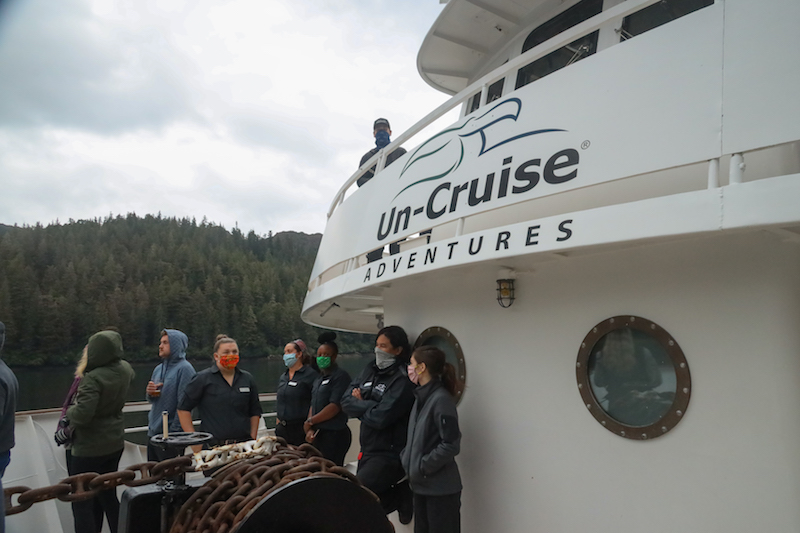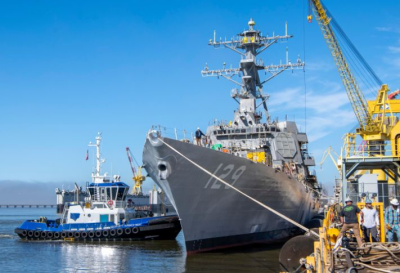The key to cruising in the age of Covid-19 is rapid testing until there’s a vaccine in the view of an operator who tried to start regular sailing again.
If quick Covid-19 test results had been available, UnCruise Adventures could have completed its first Alaska trip in early August instead of cutting it short and cancelling 10 weeks of cruises in the state and the Pacific Northwest, owner and CEO Capt. Dan Blanchard said Thursday. They’re still hoping to start cruising in Hawaii sometime this winter, but that’s in question — a reflection of the dilemma facing passenger vessel operators shut down by the coronavirus pandemic nationwide and trying to figure out how to safely get going.
“There are millions of dollars out there in losses for my company. It’s a tough pill,” he said assessing the circumstances surrounding the cruise. The Seattle-based overnight operator was expected to be the only one cruising in Alaska this season.
A passenger who tested negative a few days before the Aug. 1 departure, as required by UnCruise, was tested again on arrival in Juneau and notified of a positive result while on the Glacier Bay cruise. The passenger received a negative retest a few days later, and there was no transmission onboard, the company said.
When the Wilderness Adventurer returned to Juneau on Aug. 5, all 37 passengers were quarantined at a local hotel paid for by the company. The crew quarantined on the vessel in port. Thirty-two passengers were cleared to go home; four of the originally identified passenger’s travel partners and another person who was near them remain quarantined. The crew and boat also were cleared. The 60-passenger, 156’x38’x6’ vessel had capped occupancy at 60%.
Citing speculation that the second test could have been a false positive, Blanchard said, “It’s very apparent that this bug is a tough one. The test that was used in Juneau is the gold standard – PCR.” Chances are less than 1% that it would be a false positive. “We are definitely siding with science.”
As for restarting, he said everyone knows that a vaccine is critical. “We have to make our plans for the worst case,” he said. “We have to plan on operating with Covid-19 in the future.”
If he could address Washington, D.C., officials, he’d ask for a federal policy for rapid testing at airports and key cities. Rapid testing has a turnaround of four or fewer hours.
Blanchard said the cancellations were more market-driven than Covid-driven. “We could have easily operated these trips.” But when news of the positive test result came out, people cancelled.
As for losses, he estimated them at a couple million dollars, and said 85% of the passengers who cancelled will cruise next year.
Those onboard had an “outrageously fun time,” and they ran into a large group of humpback whales on the way back, Blanchard said. “Our Covid mitigation plans paid off.” Precautions included no port calls, pre-boarding and daily temperature tests, 110 Covid-19 testing kits onboard, and asking passengers to isolate before boarding and to wear masks in Alaska.
Members of the U.S. Overnight Passenger Small-Boat Operators Coalition, which Blanchard organized, have been adjusting restart dates on river cruises as they wrestle with regulatory issues and the impact of the virus.
Bigger ships that carry at least 250 overnight passengers and crew in U.S. waters come under the Centers for Disease Control and Prevention’s (CDC) no-sail order recently extended through Sept. 30.





